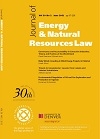The new rush to discover and exploit hydrocarbon resources in West Africa, and particularly in the Gulf of Guinea, has raised hopes in the affected countries for new petroleum wealth and economic development. History shows, however, that major oil and gas discoveries have a very mixed record, at best, in terms of societal gains and political stability. This article therefore assesses the macroeconomic and governance implications of the recent oil and gas rush in West Africa. Clearly, sound management of the resource revenues will be crucial in national efforts to tackle poverty and promote socio-economic development. While there is a large body of literature available on the issues and best practices related to oil and gas resource management and the design of associated institutions and financial mechanisms, the article fills two gaps. First, while Nigeria and Angola have received ample attention, this article focuses on some smaller countries in the Gulf of Guinea that have only recently emerged as oil and gas producers, such as Liberia, Niger and Sierra Leone. Secondly, it highlights implications for two major socio-economic characteristics of these emerging resource-rich states: (1) energy poverty; and (2) agricultural dependence and lock-in on single crops. The early evolution of institutions to manage the newfound revenues is found to be critical to long-term prosperity or instability. A legacy of beneficial or problematic social impact of new resources hinges on the success in using the new petroleum resources to establish an ‘enabling environment’ where resource wealth is seen across society as a means to build stable institutions, reduce social and economic inequality and drive national prosperity.
Oil, energy poverty and resource dependence in West Africa
